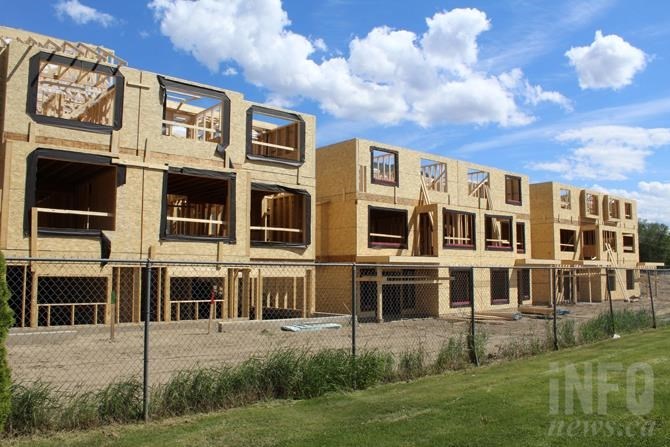Ten-fold annual increase in subsidized housing needed in Kelowna
Building enough new homes for people to buy is keeping pace with the demands of a growing population in Kelowna.
Even the supply of new rental units is doing fine.
All these new units tend to be more expensive than what a lot of people can afford, and therein lies a significant problem in the city.
“Kelowna has a major shortage of subsidized rental housing,” says a report on a new Housing Needs Assessment going to city council on Monday, Sept. 11. “We need a tenfold increase in the delivery of subsidized rental housing annually, requiring unprecedented collaboration and partnership.”
The report shows that only 2% of new housing being built is classified as subsidized instead of the 25% that's needed to meet demand.
BC Housing defines subsidized housing as no more than 30% of household income going to rent with the provincial government providing financial support or rent assistance.
Rising real estate prices are only part of the problem.
A survey of all government and non-profit owned land in the city – ranging from the federal government to Interior Health – found they owned about 20 hectares suitable for 3,000 to 4,000 housing units.
“Approximately two thirds of subsidized housing that is needed could be accommodated on existing public and non-profit lands,” the report says. “Opening these lands to subsidized housing development will not be easy. It will require creative thinking, deep collaboration, and new partnerships to move projects forward.”
An estimated 450 to 640 new subsidized housing units are needed each year.
The report shows that over the past five years only 224 occupancy permits were issue for subsidized housing units with 148 in 2020 and the rest in 2021.
There have been building permits issued this year for 181 subsidized units and 382 are in the approval process. But 450 to 640 a year are needed.
The Housing Needs Assessment focuses on the housing demand through to 2031 when the population, currently estimated to be about 150,000, is expected to grow by 31,000 more people. There's an existing shortfall of 3,750 to 5,000 homes.
Over that time frame 1,340 homes are expected to be demolished, often to make room for higher density housing. That adds up to a need for 18,740 to 26,470 new homes by 2031.
READ MORE: Okanagan residents flee high prices to relocate to Alberta
“We have demonstrated that the City can approve housing quickly enough to meet community need,” the report says. “However, the pace of housing construction needs to increase.”
A chart in the report illustrates that point by showing the gap between building permits versus occupancy permits issued since 2014 though 2022.
It shows building permits were granted for 3,192 housing units but only 13,953 occupancy permits were issued.
That could be due to large projects started in the last couple of years and not yet finished. Permits for 6,379 permits were issued in the last two years but only 3,060 occupancy permits were given out.
Along with subsidized housing, the report points out that an additional 50 to 150 new supportive housing units are needed each year.
And the report points out it’s important that housing comes sooner rather than later.
“Affordability and availability are key drivers of homelessness,” the report says. “People experiencing homelessness due to affordability challenges are more likely to need supportive housing – rather than simply housing that is more affordable – the longer that they experience homelessness.”
READ MORE: Tax breaks triggered construction of new rental units in Kelowna
The report doesn’t provide recommendations on how to build the needed housing. That will come later in an updated housing strategy. There was no indication of how long that will take to get to city council.
“Significant changes across the housing system are required to meet the housing targets outlined in this Housing Needs Assessment and, particularly, to meet community needs related to the affordability of housing,” the report says.
“Our housing crisis will not disappear overnight. But, by monitoring and reporting on our targets regularly, we will be able to see how our community’s efforts are progressing, and where further action is needed.”
The full Housing Needs Assessment can be seen here.
To contact a reporter for this story, email Rob Munro or call 250-808-0143 or email the editor. You can also submit photos, videos or news tips to the newsroom and be entered to win a monthly prize draw.
We welcome your comments and opinions on our stories but play nice. We won't censor or delete comments unless they contain off-topic statements or links, unnecessary vulgarity, false facts, spam or obviously fake profiles. If you have any concerns about what you see in comments, email the editor in the link above. SUBSCRIBE to our awesome newsletter here.




